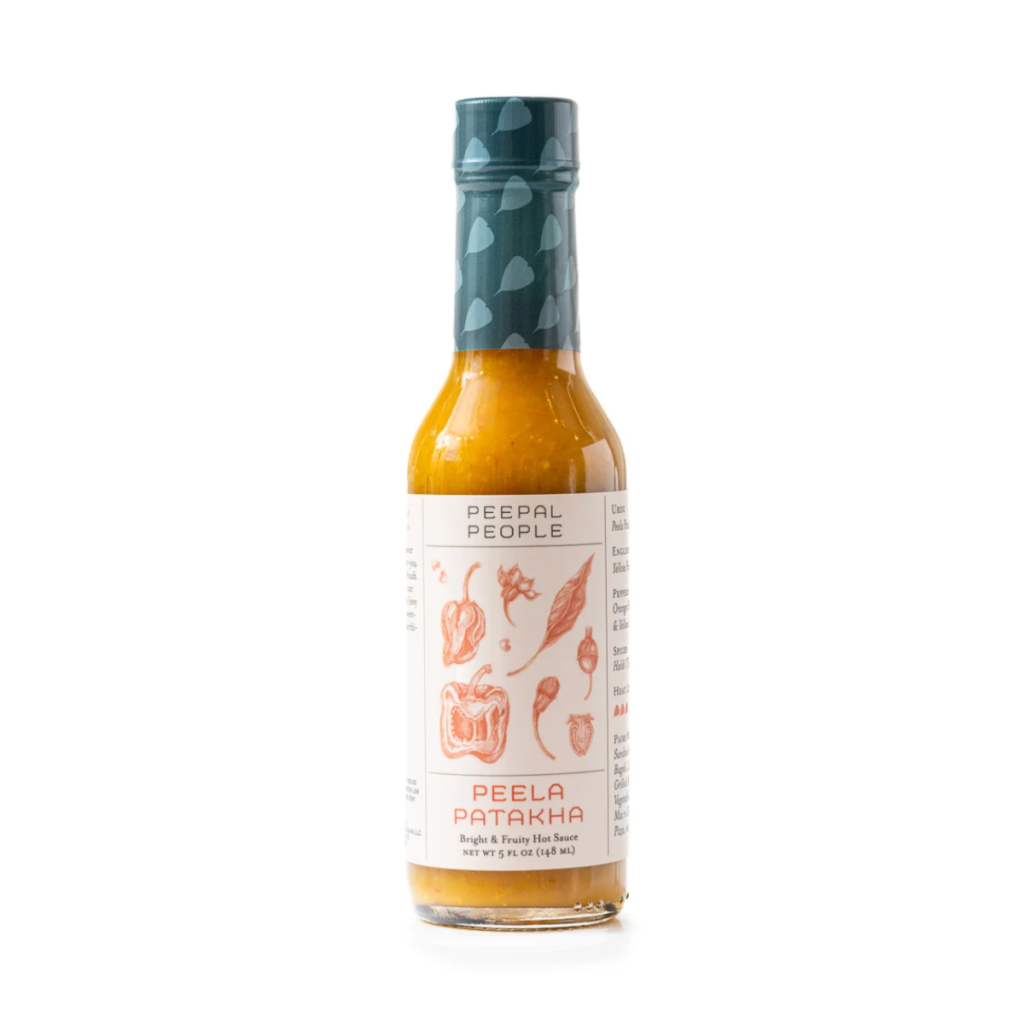Excerpt from Ari’s Top 5 enews
Spicy, Pakistani-inspired sauces from Atlanta

Two of the tastiest new hot sauces to arrive on the Ann Arbor scene are coming from a couple of Pakistani-born American designers doing wonderful work down in Atlanta. While there are a wealth of hot sauces on the American market, none that they knew of drew on traditional flavors of Pakistani cooking. Alyzeh Rivzi and (U of M alum) Ahmer Zaidi wanted to fill that void. The pair have put out a couple of super flavorful hot sauces that I’ve been enjoying on pretty much everything from egg sandwiches to salads, and everything in between. For both sauces, they ferment chiles in salt brine and then season with spices.
Hara Bhara, “Lush Green,” is the milder of the two, made with some serrano and jalapeno peppers, tomatillos, onions, amchur powder, and a bit of cilantro.
Peela Patakha, “Yellow Firecracker,” is based on habanero chiles with a bit of yellow bell peppers, tomatillos, onions, and a good bit of turmeric.
The names of the different products come from Urdu. As Alyzeh says, “We wanted to pay homage to our mother tongue.” Urdu is linguistically connected to Hindi and is widely spoken across the region. It was historically widely used in literary settings and spoken regularly in court settings. Because many words in Urdu have multiple meanings, it’s a language that’s well-suited to both settings. It’s also, it’s said, a wonderful language for writing poetry. Eighteenth-century poet Ghulam Hamdani coined the name Urdu in 1780. The style of Urdu poetry, of which Hamdani was perhaps the best-known historical poet, is known as ghazaal, the Urdu word for “gazelle.” It’s a reference to the elegance of the words of well-written poems, but it also strikes me as representative of the graceful force of these two terrific hot sauces!
Alyzeh and Amer’s design degrees are being put to good use—the labels are lovely. Peepal is the Urdu name for the sacred fig tree that plays an important role in cultural stories throughout the history of the Indian subcontinent. It’s an ancient tree with heart-shaped leaves. Both Alyzeh and Ahmer played in the shade of Peepal trees as young kids, so the tree has a personal pull as well. On a bigger scale, the Peepal has historical significance in Hinduism, Buddhism, and Jainism, and many people meditate underneath it.
You can use the Peepal People products any way you would use any of your favorite hot sauces. The aromas are excellent—I make a point of pausing to take them in before I use the sauces. The flavors are full, not super-hot but terrifically tasty. As one would say in Urdu, Aish Karna (Enjoy)!



